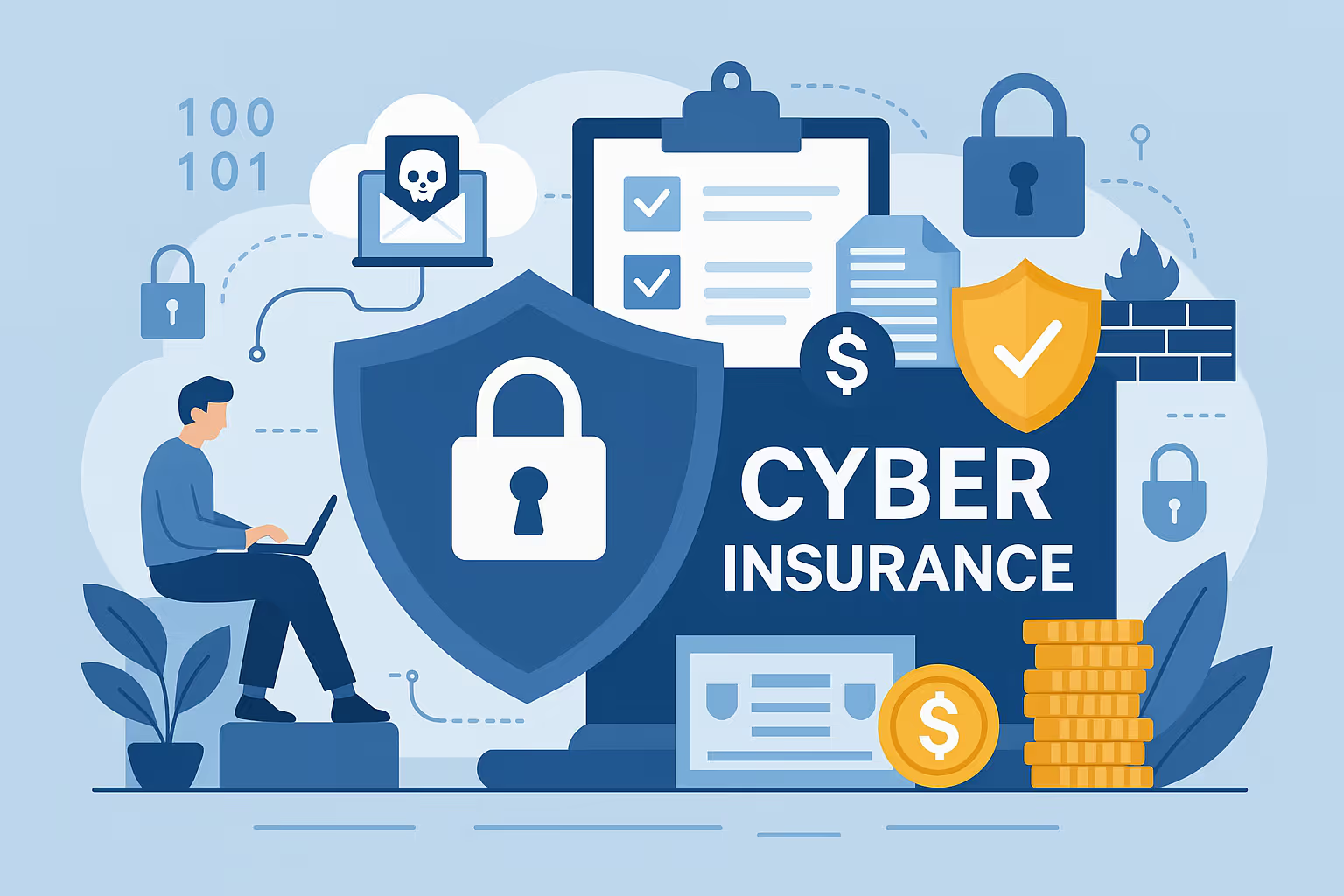
How to get...
For organizations in the Government / Defense sector, understanding how to get cyber insurance for Government / Defense involves a clearly defined process. The process starts with a risk assessment and moves through documentation gathering, provider selection, underwriting, and compliance maintenance. Below are the essential steps:
Each stage in the process is designed to prove that your organization is proactive in managing cyber risks, thereby gaining the confidence of underwriters and insurance providers. This step-by-step approach ensures that you secure comprehensive cyber insurance coverage tailored to the unique demands and risks of the Government / Defense sector in the United States.

Who provides...


Why need...
In the United States, the Government / Defense sector faces unique cyber risks that can lead to severe financial, legal, and reputational consequences. Agencies and contractors store sensitive data and critical infrastructure information that, if compromised, could jeopardize national security. Cyber insurance for Government / Defense in the United States is essential because it helps mitigate these risks by providing financial support and specialized response strategies tailored for high-stakes scenarios. Breaches in this sector may result in:
Cyber insurance for Government / Defense is not a cure-all solution, but it provides a valuable safety net during cyber emergencies. It covers incident response costs, forensic investigations, legal fees, and public relations expenses, ensuring timely recovery and continuity of defense operations. This protection is especially important in the defense sector, where tailored cyber risk management strategies are critical to counter persistent and evolving cyber threats.
Cyber insurance coverage for Government / Defense in this category protects against incidents involving the unauthorized access or disclosure of sensitive information. This coverage includes:
This coverage is critical for Government / Defense organizations due to the high-value data and strict privacy standards enforced by federal regulations. It minimizes operational disruptions and secures financial stability by offsetting the high costs of public and governmental scrutiny.
Cyber insurance coverage for Government / Defense in Business Interruption addresses losses incurred when cyber incidents disrupt essential services and operations. Key inclusions are:
This coverage matters as cyber events can paralyze defense operations and erode public trust. It ensures continuity of mission-critical services by maintaining operational integrity and supporting compliance with federal operational mandates.
Cyber insurance coverage for Government / Defense in the realm of Cyber Extortion / Ransomware provides vital protection when adversaries demand a ransom to restore access to critical data and systems. Its elements include:
This coverage is indispensable for Government / Defense entities because malicious ransomware attacks can lead to significant operational paralysis. It reinforces financial security, protects classified data, and facilitates rapid restoration of critical defense functions.
Cyber insurance coverage for Government / Defense in Regulatory Defense & Fines offers support for legal and regulatory implications stemming from cyber incidents. It covers:
This coverage is crucial for Government / Defense organizations where non-compliance can result in severe financial and operational setbacks. It helps maintain trust with federal stakeholders and ensures that cyber incidents do not lead to prolonged legal battles or compliance disruptions.
Build Security with OCD Tech That Meets the Standard — and Moves You Forward
Contact Us
Gov/Defense firms need strict cyber controls for insurance. Insurers review risk and compliance. These checks secure vital assets.
What it is: Organizations must provide detailed documentation of their cybersecurity policies, procedures, and overall risk management programs tailored to Defense sector needs. This includes written policies, network security architectures, incident response plans, and risk assessments.
Why it matters: Underwriters need this documentation to verify that a company meets the cyber insurance requirements for Government / Defense by demonstrating a structured approach to mitigating cyber risks.
Impact: Comprehensive documentation leads to improved eligibility and could result in lower premiums, as insurers view well-documented processes as indicators of reduced risk exposure.
What it is: This requirement involves the implementation of robust technical controls such as firewalls, intrusion detection systems, encryption, multi-factor authentication, and secure network segmentation.
Why it matters: Insurers examine these controls to assess how effectively a company protects sensitive data against cyber threats, a critical factor for organizations in the Government / Defense sector.
Impact: Demonstrating strong technical defenses can enhance eligibility and result in lower premiums, as it directly reduces the probability of successful cyber attacks and subsequent claims.
What it is: Companies must show evidence of adherence to relevant regulatory standards, such as NIST frameworks, DFARS cybersecurity requirements, and other defense-specific compliance protocols.
Why it matters: Compliance evidence convinces underwriters that the organization fulfills the cyber insurance requirements for Government / Defense, thereby minimizing regulatory and operational risks.
Impact: Meeting these compliance standards can improve eligibility and reduce insurance costs, as companies with strong compliance records present lower risk profiles.
What it is: Applicants must supply a detailed history of cybersecurity incidents, including any past breaches, loss or compromise of data, and corresponding remediation actions.
Why it matters: A transparent incident history allows insurers to assess the organization’s track record in managing and recovering from cyber events, a key part of underwriting in the Government / Defense sector.
Impact: A clean or well-managed incident history can positively affect eligibility and lead to more favorable premium rates, while a significant history of breaches may result in higher premiums or limited coverage.
What it is: Insurers require evidence of strategies to manage and secure third-party relationships, including vendor risk assessments, subcontractor oversight, and supply chain security practices.
Why it matters: Because Government / Defense organizations frequently work with multiple contractors and suppliers, robust third-party risk management helps mitigate additional vulnerabilities that could be exploited.
Impact: Effective management of third-party risks improves eligibility and can lower premium costs, as it demonstrates a comprehensive approach to reducing the broader risk landscape.
Secure Your Business with Expert Cybersecurity & Compliance Today
Contact Us


Differences by State...
Organizations in the Government / Defense sector face varying state-specific regulations affecting cyber insurance for Government / Defense. These variations impact coverage, premiums, compliance obligations, and risk management strategies. Below are specific state examples highlighting key differences:
Each state’s regulations directly affect how organizations evaluate, purchase, and maintain cyber insurance policies:
Understanding these key differences is vital for risk management. Government / Defense organizations must align their cybersecurity practices with state-specific rules to not only secure favorable policy terms but also enhance their overall security posture and compliance with local legislation.

Compliance & Frameworks...
By integrating these compliance measures, organizations in the Government / Defense sector can not only meet legal and regulatory obligations but also secure more competitive terms on cyber insurance policies.

Audit. Security. Assurance.
IT Audit | Cybersecurity | IT Assurance | IT Security Consultants – OCD Tech is a technology consulting firm serving the IT security and consulting needs of businesses in Boston (MA), Braintree (MA) and across New England. We primarily serve Fortune 500 companies including auto dealers, financial institutions, higher education, government contractors, and not-for-profit organizations with SOC 2 reporting, CMMC readiness, IT Security Audits, Penetration Testing and Vulnerability Assessments. We also provide dark web monitoring, DFARS compliance, and IT general controls review.
Contact Info
.svg)
OCD Tech
.svg)
25 BHOP, Suite 407, Braintree MA, 02184
.svg)
844-623-8324
.svg)
https://ocd-tech.com
Follow Us
Videos
Check Out the Latest Videos From OCD Tech!
Services
SOC Reporting Services
– SOC 2 ® Readiness Assessment
– SOC 2 ®
– SOC 3 ®
– SOC for Cybersecurity ®
IT Advisory Services
– IT Vulnerability Assessment
– Penetration Testing
– Privileged Access Management
– Social Engineering
– WISP
– General IT Controls Review
IT Government Compliance Services
– CMMC
– DFARS Compliance
– FTC Safeguards vCISO